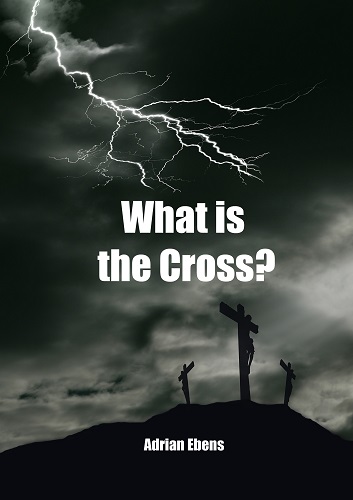The influence of Origen on the Early Church
Within fifty years of the death of Justyn Martyr, the Hellenization of Christianity had begun in earnest, and Greek philosophy was utilized to interpret Scripture at the celebrated Catechetical School of Alexandria, which was located in Egypt in nothern Africa. The city of Alexandria still exists today. The purpose of the Catechetical school was to synthesize Greek philosophy with Christianity. It's founder was Pantanaeus (d. apx. 200 A.D), who was a Sicilian Stoic philosopher who some believe had converted to Christianity while visiting India. Pantanaeus founded the Didascalia, otherwise known as the Catechetical School of Alexandria in the city of Alexandria, in c. 180 A.D, which was about fifteen years after the death of Justyn Martyr. Although the Didascalia taught many subjects and was open to all who wanted an education, it was called a catechetical school because it was identical in some ways to a modern seminary; a catechism is a summary of Christian theology which is given in question and answer form - and the main purpose of the Didascalia was to instruct neophytes of doctrine.
Clement of Alexandria (c. 150 - c. 215 A.D.) succeeded Pantanaeus when he died in c. 200 A.D. He had been his disciple since about 180 A.D.; but was forced to close the school two years later when persecution under the reign of the Roman Emperor Septimus Severus in c. 202 A.D. forced him to flee Alexandria for Palestine, from which he never returned. He was succeeded by Origen Adamantius (c. 185 A.D - c. 254 A.D), who had a encyclopediac memory and is arguably one of the most brilliant and influential theologians the world has seen, ranking with St. Augustine (354 - 430 A.D), St. Thomas Aquinas (1225 - 1274), Martin Luther (1483 - 1546), John Calvin (1509 - 1564), John Wesley (1703 - 1791) and Karl Barth (1886 - 1968); for over the centuries, the theologies of all of these men have greatly influenced the various streams of Christianity.
Although Origen believed many fascinating errors which the Catholic Church quite rightly later condemned as heresy, nevertheless, he is still considered to be one of the early Fathers of the Church. Origen noted that when Ignatius Theosophorus was martyred in aproximately 107 A.D, in his dying breath he exclaimed "My eros has been crucified!" Origen attributed `my eros' to Christ - in the sense that Christ is depicted as the `eros' which has been crucified:
`Nor do I think one could be blamed if one were to call God Eros, just as John called him 'Agape'. And besides that one of the saints named Ignatius said of Christ, 'But my eros has been crucified.' (`Eros unveiled: Plato and the God of love', C. Osborne, 1996, p. 73, fn. 44; `ComCt, 71-2.)
Although there is some debate as to what Ignatius actually meant, one could hardly expect that a disciple of Christ who had sat at his master's feet when he was about seven years old, would suddenly declare that the character of Christ is `eros'! The following comment gives a far more reasonable explanation:
`This is a curious comment, for Ignatius, who did at times show an almost mystical devotion to Jesus, in this passage is not referring to Christ, but his own sensual nature, and is taking up Paul's words that `they that are of Christ Jesus have crucified the flesh with the passions and the lusts thereof'. Origen however had his own purposes. He wanted to interpret the sensual language of the Song of Songs as a mystical allegory of the relation between Christ the Bridegroom, and his Church. More specifically, he wanted to leave room for the integration of his own Platonic philosophy with the language of scripture. He was followed in this by Pseudo-Dionysius [late 5th or early 6th century], who discussed the propriety of Eros as a name of God at some length, and it passed from there into the language of mystical piety.' (`Moral Values in the Ancient World', 1959, p. 101.) By this time, men such as Origen had clearly turned away from the unconditional love of Christ, and were instead openly teaching that God is `eros', while at the same time admitting that the apostolic conception of the character of God was `agape', and thus the corruption of the character of God became firmly entrenched within the corridors of this school, and the pure stream of Christianity was further muddied by the same tenets which had been previously taught by Justin Martyr barely fifty years earlier.
There can be little wonder why, for the doctrine of the natural immortality of the soul specifically portrays God as `eros', and as this is a doctrine which Origen fervently believed in, then Origen's natural reaction was to promulgate the perfidy of the doctrine as sublime truth. We see this in the divergence between the Platonic schools of philosophy at Alexandria, which strictly taught the God of the Greeks, and the neo-Platonic Catechetical School at Alexandria, which sought to syncretize Greek philosophy with Christianity:
`While, then, these two schools had so many grounds in common, where was their point of divergence? We shall find it, I believe, fairly expressed in the dying words of Plotinus, the great father of Neoplatonism. "I am striving to bring the God which is in us, into harmony with the God which is in the universe." . . . . But to that Pantaenus, Origen, Clement and Augustine would have answered, - "And we, on the other hand, assert that the God which is in the universe, is the same as the God which is in you, and is striving to bring you into harmony with Himself." ' (`Alexandria and its Schools', C. Kingsley, 1854, p. 100.)
It is within the environs of Alexandria where we find men who were more than willing to accommodate Christianity with philosophy. Students of this school of philosophy applied the philosophies of Plato and Aristotle to Scripture, and thus produce a syncretised religion of paganised Christianity and Greek philosophy, which was known as Neo-Platonism (New Platonism). As it was situated in the city of Alexandria, which had been named after Alexander the Great, and was considered to be the centre of Greek culture and commerce, it is not hard to see how Philo of Alexandria (c. 20 B.C - 50 A.D), who was a Hellenized Jew who had imbibed of the philosophies of Plato, heavily influenced the formation of this school, which was designed to meet the intellectual element of the Greek philosophers on their own ground:
“In such a city as Alexandria - with its museum, its libraries, its lectures, its schools of philosophy, its splendid synagogue, its avowed atheists, its deep-thinking Oriental mystics - the Gospel would have been powerless if it had been unable to produce teachers who were capable of meeting Pagan philosophers and Jewish Philoists on their own ground. Such thinkers would refuse their attention to men who could not understand their reasonings, sympathize with their perplexities, refute their fundamental arguments, and meet them in the spirit of Christian courtesy." (`Matter's Hist. de l'Ecole d'Alexandrie'.)
Philo had an intimate knowledge of the culture and philosophies of the Greeks, and attempted to synthesise the Judaic tradition of messianic Hebrew thought with the speculative elements of Greek philosophy. He revered Plato, and referred to him as "the most holy Plato" (Prob. 13). He believed that Moses was "the summit of all philosophy" (Op. 8), and believed that Moses taught Pythagoras (born c. 570 B.C), from whom the discovery of geometry is attributed to. Philo believed that Greek philosophy further refined the teachings of Moses, and accordingly applied Moses to Plato, of whom it was believed that `Plato was none other than Moses speaking Attic Greek'. Clement of Alexandria was heavily influenced by Philo, and believed that although inspiration came through the Greeks, `a more perfect wisdom' came from Christ:
`Previous to the coming of Christ, philosophy had, according to his opinion, been the same thing to the Greeks that the law of Moses was to the Hebrews . . . . Both of them pointed out the road to salvation; the former to the Greeks, the latter to the Jews. Neither the one nor the other system of discipline could pretend to absolute perfection, nor did either of them preserve itself free from the adulteration of human opinions. In process of time, therefore, it pleased the Deity to impart to the whole human race a more perfect wisdom, through Jesus Christ.' (`Historical Commentaries on the state of Christianity during the first three hundred and twenty five years from the Christian Era', Vol. 1, 1851, Johann Mosheim, p. 342.)
Perhaps this explains why Justin had donned the philosophers garb after his conversion to Christianity - while the Apologists of the second century endeavoured to meet the pagan philosophers on their own ground, in doing so they imbibed of subtle heresies which they themselves failed to discern:
`The apologists' enterprise of examining and defending Christianity in light of Greek philosophy was not entirely new. A century or more earlier the Jewish scholar Philo had attempted to wed Judaism and Greek philosophy in Egypt. His great influence there among both Jews and Gentile God-feareres probably helps to explain why Alexandrian Christians in the second and third centuries were most open to this project of explaining the Bible and Christian beliefs philosophically. Some of the apologists emulated Philo's positive evaluation of Greek philosopers. Philo, for instance, had taught that Plato's philosophy and Moses' teachings were both based upon divine revelation and at heart were similar if not identical. In order to make this work he had to interpret the Hebrew Scriptures allegorically. By using that method, he was able to blend Greek and Hebrew ways of thinking about God, creation and humanity. Philo's approach to Jewish thought was already widely accepted (though not without controversy) among Jews of the diaspora, and Christian apologists of the second century built on that foundation in order to show a similar consistency between the best of Hellenistic thought and their own fairly sophisticated versions of the Christian message.' (Olsen, p. 55.)
While the apologists used Paul's dicourse in Athens which he directed to the Stoics and Epicureans in Athens about the "unknown god" (Acts ch. 17) to justify their reasons for meeting pagan Platonism with so-called Christianised neo-Platonism; for reason that he quoted from their own poets so he could meet them on common ground which they understood (Olsen, p. 55), this in fact provided the apologists with only the slimmest of excuses, as Paul didn't imbibe of these same philosophies which he took great pains to warn the churches about! Saul, or Paul, as he came to be known after he was literally blinded by the light on the road to Damascus, was well aware of the Platonic influences which were beginning to flood the early Church while he was alive, and strenuously labored with the Corinthian Church which (to a large degree) consisted of Greek converts who still retained pagan conceptions of God which were marred by Greek philosophy. This led him to warn the Greek converts that Christians should beware of the foolishness of the wisdom of men, which was at that time was epitomised by the Platonic philosophies which many of these Greek converts retained after they were baptized into the Church; for Paul drove home the point that he did not come among amongst them to baptize them, but instead `to preach the gospel: not with wisdom of words, lest the cross of Christ be made of no effect' (1 Corinthians 1: 17).
The penchant which Origen had for allegorizing away the plainest passages of Scripture, undoubtedly resulted from the baleful influence of Clement of Alexandria, his teacher. Clement had in turn been a pupil of Pantanaeus (d. apx. 200 A.D), who was a Sicilian Stoic philosopher whom some believe had converted to Christianity while visiting India. About 180 A.D (which was about fifteen years after the death of Justin) Pantaneus founded the Didascalia, otherwise known as the Catechetical School of Alexandria in Alexandria, Egypt. Although the Didascalia taught many subjects and was open to all who wanted an education, it was called a catechetical school because it was identical in some ways to a modern seminary; a catechism is a summary of Christian theology which is given in question and answer form - and the main purpose of the Didascalia was to instruct neophytes of an amalgamation of Christian doctrine and Greek philosophy, which eventually became known as neo-Platonism, or the New Platonism. So if we are to look to where the philosophies of Plato first gained respectability, and then an entrance into the early Church, it is to the Catechetical School of Alexandria that we first turn to, which gained prominence toward the beginning of the third century A.D.
It is men such as Clement of Alexandria and Origen who believed that the Scriptures should not be interpreted in their literal sense, as Greek logic determined that the literal sense of the Scriptures had been corrupted by the material plane in which we reside, and were therefore not to be trusted if they were read in their literal sense. They believed that the Scriptures must therefore interpreted by allegorical interpretation, which is to say that the Scriptures contained hidden meanings buried deep within them, which only the wisest sages who were trained in the hidden mysteries were able to interpret. This of course meant that the plainest sense of Scripture could be interpreted to mean just about anything, as is seen in Augustine's allegorisation of the story of the Good Samaritan in the fourth century:
` . . . in which the man is Adam, Jerusalem is the heavenly city, Jericho the moon - the symbol of immortality; the thieves are the devil and his angels . . .' (`The Language and Imagery of the Bible', G. Caird, 1980.)
As the tendency to allegorise Scripture became the dominant precept which was taught at the Didiscalia, that which was plain and easy to be understood become enshrouded in mystery and obscurity:
`This new species of philosophy, imprudently adopted by Origen and other Christians, did immense harm to Christianity. For it led the teachers of it to involve in philosophic obscurity many parts of our religion, which were in themselves plain and easy to be understood: and to add to the precepts of the Saviour new few things, of which not a word can be found in the Holy Scriptures. It also produced for us that gloomy set of men called mystics, whose system, if divested of its Platonic notions respecting the origin and nature of the soul, will be a lifeless and senseless corpse. It laid a foundation, too, for that indolent mode of life which was afterwards adopted by many, and particularly by numerous tribes of monks; and it recommended to Christians various foolish and useless rites, suited only to nourish superstition, no small part of which we see religiously observed this present day. And finally it alienated the minds of many, in the following centuries, from Christianity itself, and produced a heterogenous species of religion, consisting of Christian and Platonic principles combined. And who is able to enumerate all the evils and injurious changes which arose from this new philosophy - or, if you please, from this attempt to reconcile true and false religions with each other?' (`Institutes of Ecclesiastical History', J. Mosheim, Book I, Century II, par. 12., p. 61. 1850.)
Clement followed in the footsteps of Philo, of whom he considered to be a source of inspiration, and began a tradition within the Catholic Church which culminated during the Reformation of the sixteenth century, in which the Church declared that the Bible is not held to be the sole source of inspiration of the Church, for the chief source of inspiration lies first in the tradition of the Church, and then the Bible. How this came to be is demonstrated by the Greek logic which Clement disseminated in the Cachetical School in Alexandria, and in later centuries came to be accepted by the hierarchy of the Church. Clement taught that the literal sense of the Scriptures was not to be trusted, for the Scriptures were written by men who had been corrupted by the material plane of existence in which they dwell. Therefore the outer layers of Christian truth had to be peeled away and discarded, so that the hidden truths contained therein might be revealed; much like a nut lies hidden by the shell in which it is encased:
`There can be no question, however, but that Clement is to be ranked amongst the first and principal Christian defenders and teachers of philosophic science, indeed that he may even be placed at the head of those who devoted themselves to the cultivation of philosophy with an ardour that knew no bounds, and were so blind and misguided as to engage in the hopeless attempt of producing a accomodation between the principles of philosophical science and those of the Christian religion. He, himself expressly tells us in his Stromata, lib. i. cap. i. p. 326. opp. that he would not hand down Christian truth pure and unmixed, but "associated with, or rather veiled by and shrouded under the precepts of philosophy." For, according to him, the rudiments or seeds of celestial wisdom communicated by Christ to the world, lay hid in the philosophy of the Greeks, after the same manner as the esculent part of a nut lies concealed within a shell . . . . For he appears to have been firmly persuaded that the essence of the Greek philosophy was sound, wholesome, and salutary, in fact, that it was perfectly consonant to the spirit of Christian wisdom, but that it was compassed about and veiled from immediate observation by a cloud of superstition and fictions, just in the same way as the kernel of a nut is concealed by the shell, and that we should, therefore, make it our business industriously to penetrate this exterior covering, so as to discover the true relationship between human and divine wisdom. Stromata. lib. vii. p. 832. cap. ii . . . . (Mosheim, pp. 341 - 342.)
Thus we find that the allegorisation and spiritualizing away of Scriptures began in Alexandria with Clement of Alexandria, which is why during the dark ages, Protestants were burned at the stake for the supposed crime of possessing a Bible, as it was believed that the literal sense of Scripture would turn the cursed heretics from the true Church of God, by hopelessly corrupting them with the literal sense of Scripture. Clement was succeeded by Origen, who perhaps has contributed the most to the corruption of the Christian Church, by turning the `Lamb of God, Who is depicted in Scripture, to `another Christ' preaching `another gospel' of a `God' whom man cannot access without the aid of the Priest or philosopher, who not only plays hide and seek with those who attempt to find him, but mercilessly persecutes those who differ in doctrinal from the True Church of God.





